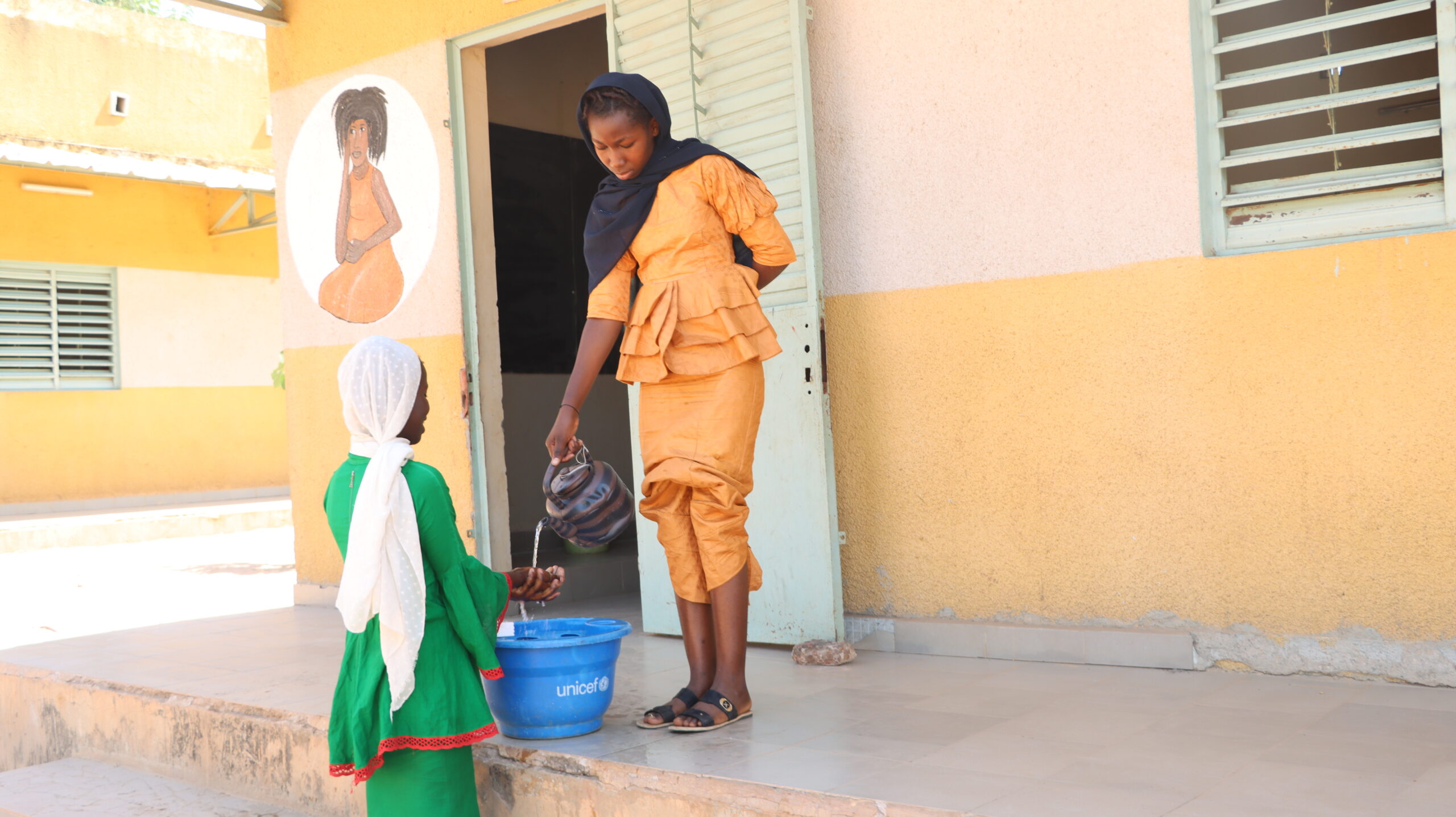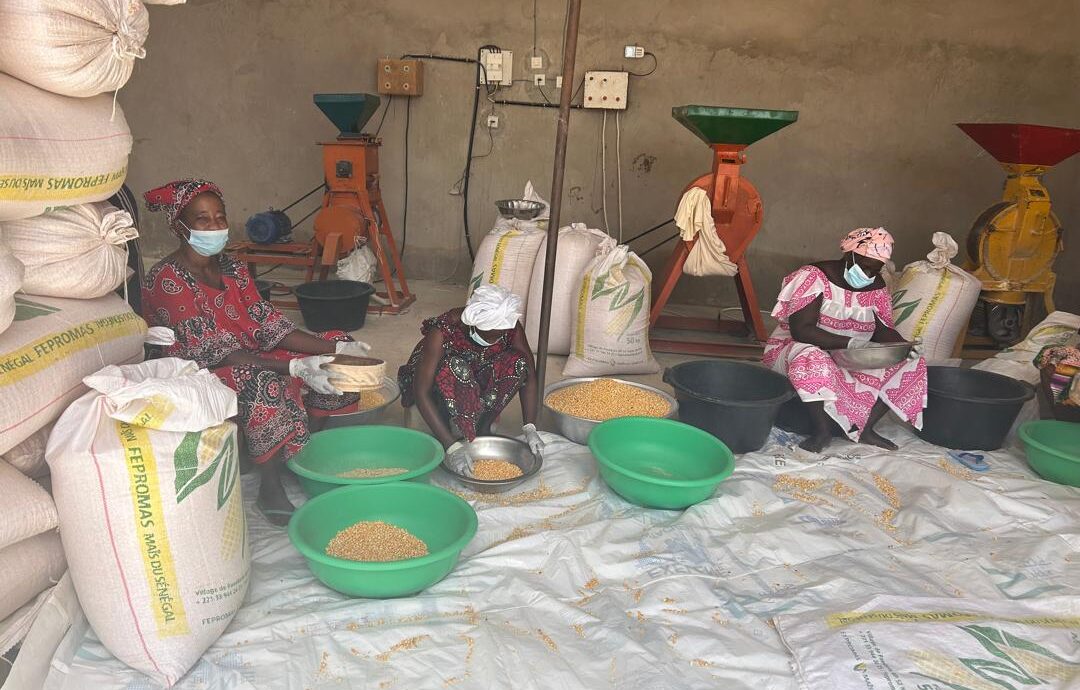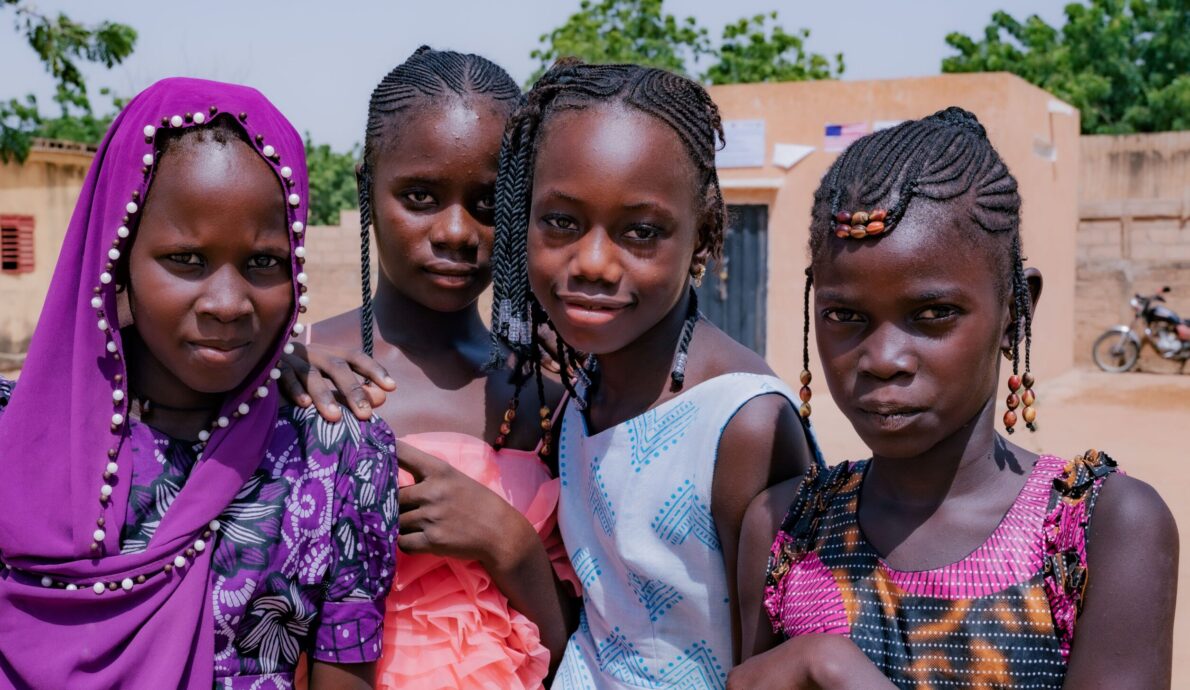Through the USDA McGovern-Dole International Food for Education and Child Nutrition program, Counterpart strengthens the resiliency of food systems by fostering the conservation of resources, particularly water.
Counterpart supports sustainable water practices in three ways: consumption, management, and stewardship initiatives. Improved agricultural techniques, including the use of crops that are less burdensome on water systems, is a proven approach to mitigating water scarcity. Through the school feeding program in Senegal, Counterpart worked with Virginia Tech to introduce mung beans to local communities. Mung beans, a variety of legumes, are an excellent source of protein and micronutrients, fast growing, and require less water for farming. These benefits have resulted in families incorporating nutrient-rich foods into their diets, and small shareholder farmers using less water, and being able to sell surplus from increased yields at the local market.

Our school feeding project in Senegal promotes sustainable water practices.
The McGovern-Dole projects prioritize water, sanitation, and hygiene interventions through improving and increasing access to water systems, latrines, and smart water use. The school feeding projects focus on the safe preparation and management of food—training volunteer cooks on how to safely prepare food. Health and nutrition fairs, held multiple times a year at the schools, promote hand-washing and safe food preparation techniques to community members. The projects promote building or rehabilitating latrines, water access points, and water systems. Separate latrines for girls and boys ensure that students have a safe place to use and encourage girls to remain in school even while menstruating. Water systems and access points ensure cooks, teachers, students, and community members have access to water for handwashing, cooking, and drinking. We collaborate with local engineers and train community representatives on the care and management of water systems to ensure systems are maintained long after the project’s completion.

Volunteer cooks are trained on how to safely prepare food.
Counterpart partners with government institutions and local water management agencies to support a strong enabling environment and sustainable water management. In Mauritania, for example, we partner directly with the National Office of Rural Water Services to ensure water infrastructure projects are well-monitored and meet water quality norms and safety standards. We collaborate with various stakeholders to secure community buy-in and lay the foundations for sustainable interventions by providing training and support so that the communities feel ownership of the management and care of their facilities Fostering a strong enabling environment between government institutions and the communities they serve mitigates the negative outcomes of natural disasters and climate change. When the linkages between community and government are strengthened, resilience is strengthened, and communities are better able to bounce back from shocks.
Water sustains life on our planet. What we eat and how we produce it affect this precious resource. Counterpart supports communities to bolster their stewardship of this resource, creating more sustainable, healthier futures for all.




